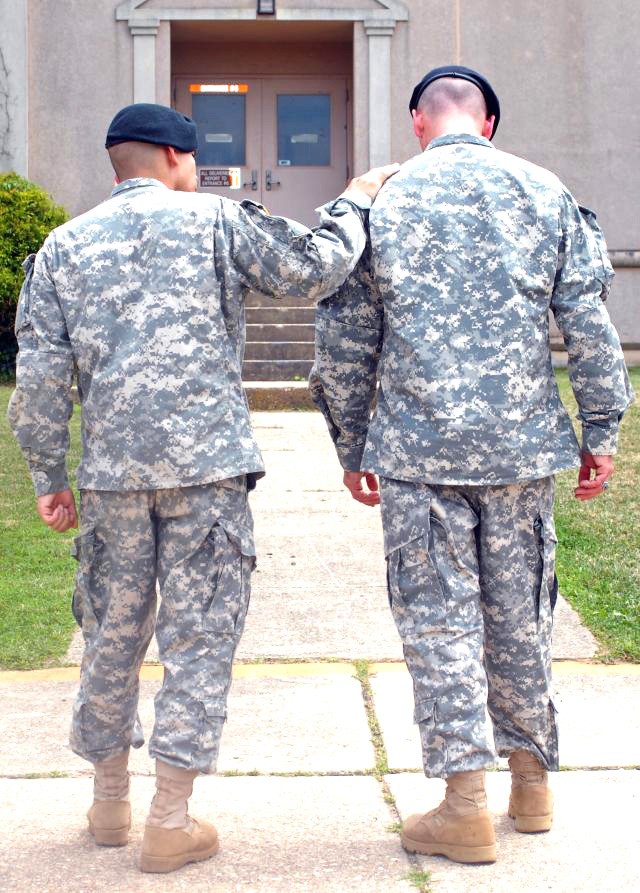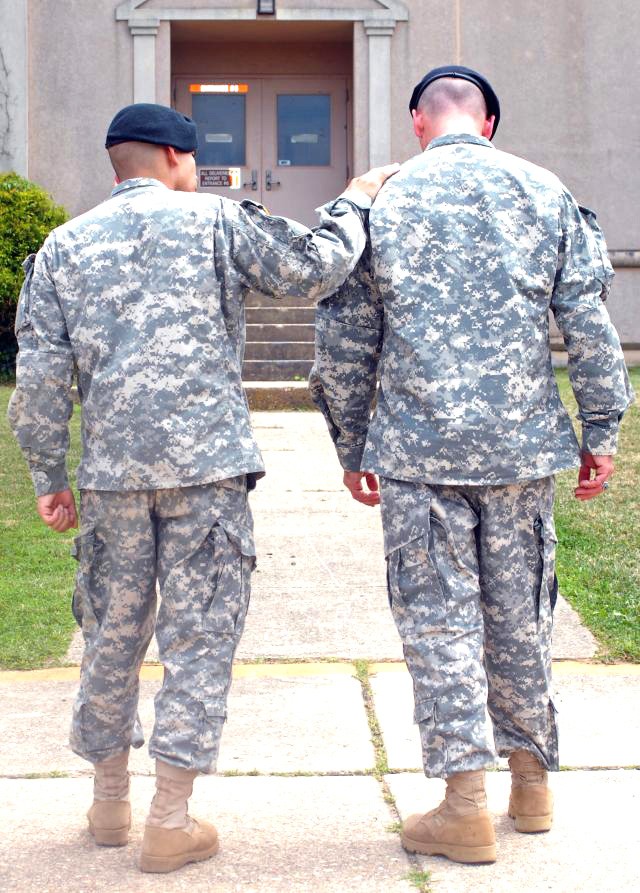Commander's Message
Garrison Commander
Fort McPherson and Fort Gillem
Taking care of our own is part of our military culture and ethos, and has never been more applicable than it is today - not only on fields of combat, but also in the peace of an office environment.
After all, even in the quietest settings, looking out for each other can mean the difference between life and death.
"Shoulder to Shoulder - I will Never Quit on Life" is the theme for this month's Suicide Prevention Month campaign.
The theme promotes the dual responsibilities of suicide prevention - our pledge to be there for each other and our obligation to do everything we can to help ourselves.
Much has been said and done regarding Army suicides over the past several years.
After all, the numbers have not been pretty. In fiscal year 2009, there were 160 suicides in the Army. Of those, 79 percent were among Soldiers who had never deployed or had only deployed once, and 60 percent were among first-term Soldiers.
In June, 32 active duty and Reserve Soldiers committed suicide, the highest monthly figure since the Army began keeping such statistics.
Because every death is one too many, the military's commitment to the health, safety and well-being for its Soldiers, Civilian employees and Families continues not only locally, but also at DoD and Army levels.
Among other initiatives, Defense Secretary Robert Gates is reviewing recommendations for better suicide prevention coordination among military services.
The Marine Corps is facing a similar rise in suicide rates.
It was reported recently that the Marine suicide rate has more than doubled in the past three years, and now surpasses the Army as the worst among the armed forces.
Finding ways to curb the tide of deaths in one military service can help save lives throughout the armed forces.
At the Army level, a Suicide Prevention Task Force released a report July 29 titled "Health Promotion Risk Reduction Suicide Prevention" outlining the results of a 15-month study to understand the increasing rate of suicides in the force.
The document, which has more than 300 pages of information and offers more than 250 recommendations, can be read at http://usarmy.vo.llnwd.net/e1/HPRRSP/HP-RR-SPReport2010_v00.pdf.
Locally, several events are being held throughout Fort McPherson and Fort Gillem throughout this month to improve military and Civilian employees' understanding of suicide factors, prevention programs and avenues for help.
Suicide prevention training will be held Wednesday and Sept. 22 at 1:30 p.m. and Thursday and Sept. 24 at 10 a.m. at the Fort McPherson Post Theater.
The training, which is free and open to everyone, will be hosted by the U.S. Army Garrison Chaplain's Office staff.
Suicide prevention will also be a topic discussed by Carol Graham at the Women's Equality Day event to be held at The Commons at Fort McPherson Sept. 17 from 11:30 a.m. until 1 p.m.
To get a ticket to the free event, call the U.S. Army Garrison Equal Employment Opportunity Office staff at 464-2420 or 464-1685.
U.S. Army Forces Command (FORSCOM) will broadcast a video titled "Shoulder to Shoulder" each weekday throughout the month from 11:30 a.m. until 1 p.m. in the atrium.
Also, prevention training will be held today, Thursday and Sept. 21, 23, 28 and 30 from 11:30 a.m. until 12:30 p.m. in the G-1 conference room.
For more information on these and other FORSCOM suicide prevention events, call Lt. Col. Margaret Frittitta, FORSCOM'S Suicide Prevention Program manager, at 464-7725. Other units are also hosting suicide prevention activities.
It's important to remember that while steps are being taken at all levels of the military to prevent suicides, the most effective level lies with individuals.
It's imperative that we look out for each other.
While the signs and reasons for suicidal thoughts and actions are many, common indicators include relationship problems, financial difficulties, professional performance and satisfaction issues, poor health and legal problems.
Often, several of these and other stressors combine to leave an individual feeling desperate.
It's up to each of us to look for signs in others and to be available to provide assistance.
It's also up to each of us to be honest with ourselves and to seek help when we're feeling overwhelmed or depressed.
By waiting to seek assistance, or not seeking it at all, we do a disservice to ourselves, our Families and our co-workers by allowing problems to worsen.
No matter how far you've let a problem grow, getting assistance can start the process to finding resolution and alleviating the stress and pain that's grown with it.
Individuals affiliated with the DoD can get assistance from Military OneSource, a free, 24-hour, DoD-supported center where Soldiers and their Families can get help or referrals.
To contact the center's staff, call 800-342-9647 or visit www.militaryonesource.com. Locally, Soldiers can talk to members of their chain of command.
They can also talk to a Lawrence Joel U.S. Army Health Clinic Behavioral Science Services representative by calling 464-3562 or by visiting www.behavioralhealth.army.mil. Civilian employees, military retirees and Family members can call the Wellness Center Suicide Prevention staff at 464-2462. Also, members of the military community can contact their unit chaplain.
To contact a chaplain, call the U.S. Army Garrison Chaplain's Office staff at 464-2004 or, during non-duty hours, call the garrison staff duty officer at 464-2980 or 464-3602 to reach the on-call duty chaplain.


Social Sharing